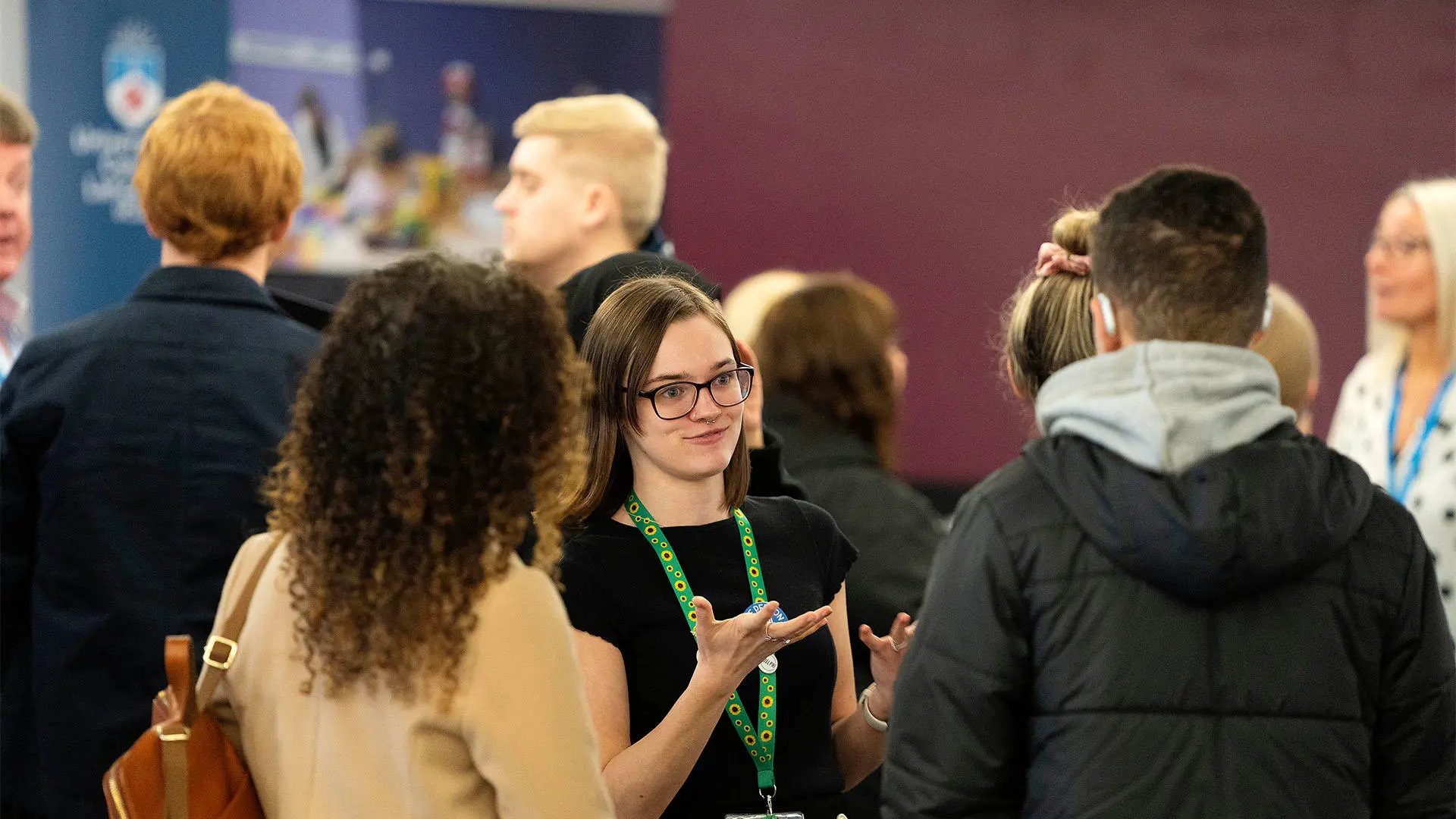Being neurodivergent can feel like an unseen barrier. For many reasons it can feel hard to reach out for help. But if you're self-diagnosed or have only recently been diagnosed it's common to feel hesitant.
Our Student Support Team are here to work with your needs as a neurodivergent person, whether you have a diagnosis or not.
What might feel challenging at an Open Day?
Open Days are often busy, noisy, and fast paced. So there is a potential for challenges with:
- Sensory overload (from groups of people talking, crowded spaces, and lighting changes going in and out of buildings)
- Navigating an unfamiliar environment (like the city, our campus, and its buildings and facilities)
- Executive function challenges (such as organising documents and being on time for campus or accommodation tours)
- Initiating social interactions (when speaking with lecturers, staff, or Open Day attendants)
Sarah's experience of Open Day
Sarah is an autistic student studying her PhD in Animal Remains in Neolithic Cave Burials. Due to being a PhD student and studying at the University since she was an undergraduate student, Sarah has attended plenty of Open Days.
She shares her story of what her first Open Day experience was like:
I started my university journey by attending my first Open Day when I was in lower sixth form. I am also profoundly autistic, dyslexic, and dyspraxic. At the time of my first open day, I was not officially diagnosed. I was, therefore, extremely anxious about attending my first Open Day, even though I was with my mum.
As soon as I arrived, I realised that my anxiety was unfounded. Student Ambassadors were stood on every street corner to tell you where to go. My dyslexia makes it difficult to follow a map, but a nice ambassador took me straight to registration the moment I asked for help.
The registration used QR codes on tablets, so I didn’t have to remember a paper ticket or dig through old emails. My dyspraxia can make me quite disorganised, so this took so much off my mind.
I went to speak to the Inclusive Support Team who handle supporting disabled students throughout the University. I was surprised to learn about all the things I could access. I was particularly interested in the speaking software, that would let me speak my assignments into my computer. I could get a chair with arms to help with my dyspraxia. This was so refreshing to hear. I began to realise that maybe I could go to university and succeed.
I was attending the Archaeology and Anthropology subject sessions. I was worried that my disability would get in the way of my understanding of the sessions. Sometimes, being disabled gives me bad imposter syndrome, and I think I can’t do anything. However, as part of the talk introduction, the course leader told us all that he was dyslexic, and might need some extra time to explain things, or pronounce words wrong.
Knowing that a university lecturer had the same disability as me really put my mind at ease. Being disabled was not a dirty secret, but a cool ice breaker to start a lecture with.

